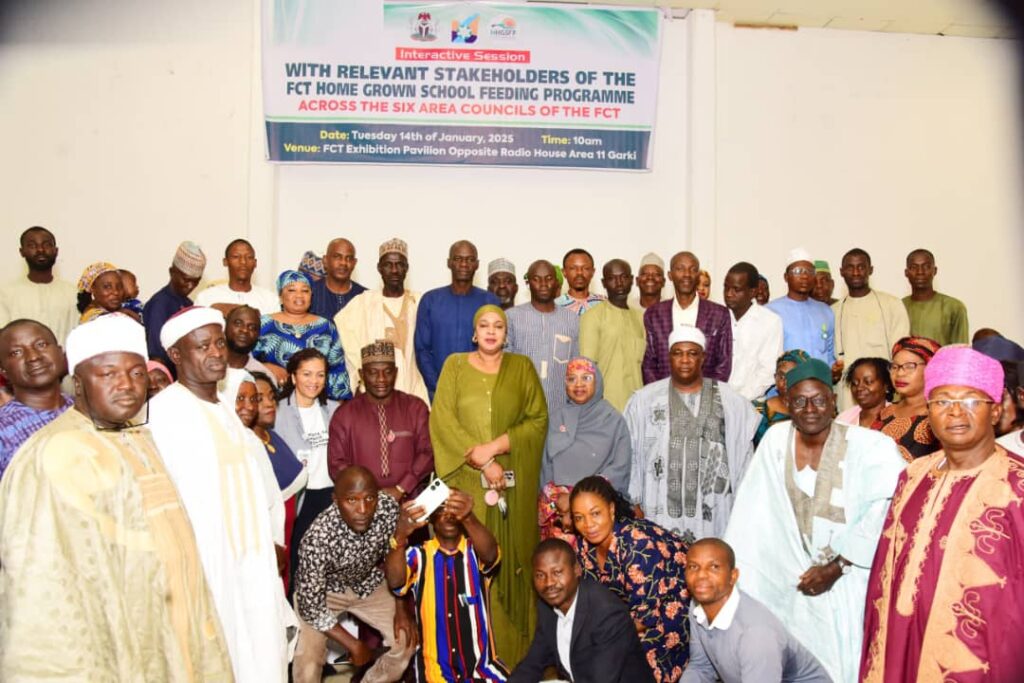By Queen Kunde
The Federal Capital Territory (FCT) Minister of State, Dr. Mariya Mahmoud, has hailed the Home-Grown School Feeding Programme (HGSFP) as a vital catalyst for local agricultural development, noting its significant impact on empowering local farmers and strengthening the rural economy.
In a press release made available to Ziti News by the Special Adviser on Media to the FCT Minister of State, Mr. Austin Elemue, the FCT Minister of State emphasized that the program not only improves educational outcomes but also supports sustainable agricultural growth by relying on locally sourced produce, thus benefiting farmers and boosting the rural economy.
Speaking at an interactive session with stakeholders from the six area councils of the FCT, Dr. Mahmoud said that the event aimed to reflect on the program’s successes and challenges while charting a sustainable path forward. The session brought together government officials, school administrators, community leaders, farmers, cooks, and development partners. Dr. Mahmoud, represented by the FCT Focal Person for Social Investment Programme (SIP), Hajia Maijidda Adamu Kuku, reaffirmed the Administration’s commitment to maintaining regular dialogues with stakeholders to ensure the program’s continued success.
“We will continue to do our best within available resources to facilitate the effective operation of the program, ensuring no school is left behind,” Mahmoud said. She encouraged stakeholders to bring innovative ideas and practical solutions to strengthen the program’s operations.
Dr. Yetunde Adeniyi, Senior Special Assistant to the President on School Feeding Programme, in her goodwill message, underscored the program’s importance, noting its role in boosting school enrollment and improving learning outcomes by providing nutritious meals to thousands of children. She urged stakeholders to work together to tackle challenges and ensure the program’s sustainability.
Hauwa Abubakar, the programme’s operations officer in the FCT, highlighted the importance of community engagement, transparency, and accountability in improving service delivery. Agnes Mungatia, a representative from the World Food Programme, called for enhanced collaboration among all stakeholders to secure the program’s long-term success.
With local farmers and communities at the core of the initiative, the Home-Grown School Feeding Programme continues to drive progress in both education and agriculture across the FCT.
